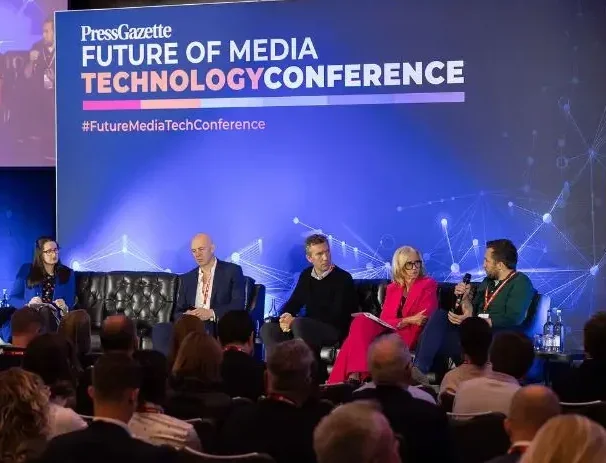
Just over a third of News UK staff are using AI tools on a daily basis, according to chief operating officer David Dinsmore.
Dinsmore said this appears to be in line with adoption of AI tools by the general public at work.
But he added: “I think what we’ve learned from that is we need to make it 75% pretty quickly.”
Dinsmore was speaking on a panel about “newsroom transformation in the age of AI” at Press Gazette’s Future of Media Technology Conference in London on 12 September.
He revealed The Times developed an AI-powered content management co-pilot to help with headline suggestions, summaries and some “light subbing” which has now been rolled out to The Sun and other News Corp titles.
News UK‘s own “safe version” of ChatGPT and Google’s Gemini chatbots, called News Assist, has been made available to staff so they can input sensitive documents, and the company’s engineers have access to a new coding AI.
Finally, Dinsmore said, the publisher has created News Transcribe, its own version of a speech-to-text tool like Otter or OpenAI’s Whisper.
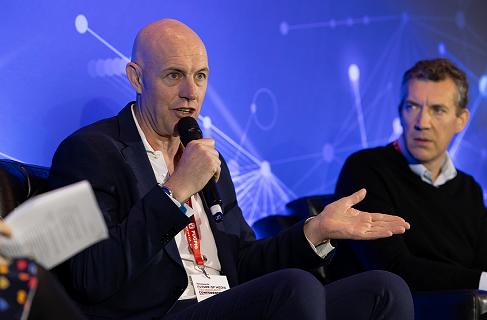
Australian news website Crikey revealed earlier this month that News Corp had blocked the use of Otter.ai by journalists in the country.
Asked by Press Gazette why the company created its own tools – which are all based on existing large language models – rather than using what was already out there, Dinsmore said: “The reason you do some of your own iterations is security. I think there’s another well-known voice to text tool that may come out of China and you may not think that’s a great place to have all your information… But also we know our business best and I think we should be adapting these super-powerful models to superpower our products at the same time.”
Reach’s Guten AI rewriting tool is ‘continuously learning’
Reach, the UK’s biggest commercial news publisher, rolled out the use of its own AI product at the start of this year.
Articles written for one Reach website can be “re-versioned” for any of its other brands in their own house style by Guten.
This rewriting was previously done by Reach journalists who can now spend time writing original articles that are “distinct to their particular beat or their particular patch” instead.
Paul Rowland, editorial director of Reach’s Live network of sites, told the panel: “We know from referral behaviour that almost any story that exists on our network can drive enormous audience on almost any site on our network through third-party referrals at any time. What Guten does is allows us to do that at scale.”
He added: “It’s widely used across our organisation, it means that we can do things that we wouldn’t otherwise be able to do. It’s continuously learning so you edit within it and it means that… it continually becomes more focused and tuned to a particular house style. And we’re developing it all the time to increase its capacity and increase the language models as well that sit behind it.”
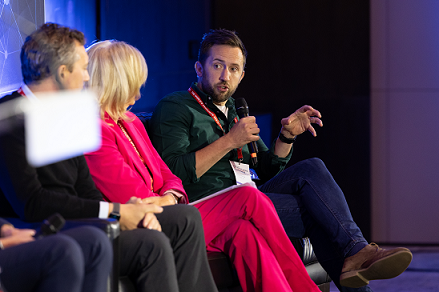
Reach also experimented with AI-produced bullet point summaries at the top of articles on its website Nottinghamshire Live.
Last year Swedish news website Aftonbladet found people were spending longer on articles with AI-generated summaries at the top. It appeared that people who got a more general understanding of an article upfront were more likely to read the whole text.
Rowland said this was the hypothesis behind Reach’s experiment, which he said was “modestly successful” although they have not continued with it.
“I think certainly in terms of where we’re going next with that, with Guten and with versioning there’s also a big opportunity for us in repackaging particular stories and pieces of content into formats, summaries that are relevant, that are customised to different audiences, different age demographics, different platforms, so we can get multiple value out of one piece of content in a more efficient way.”
Are AI disclaimers always necessary?
Initially, Rowland said, every piece of content that went through Guten carried a disclaimer about its use of AI.
However he explained why this has changed: “My view is that that’s an AI-supported editing process. I think it’s different.
“That’s a piece of content written by a human, reorganised by AI, re-edited by a human. I think that is an entirely different situation to a piece of content generated from scratch… from asking ChatGPT to write me a new story.
“And I think absolutely we would always, if we were doing that kind of thing, would absolutely, always declare that. But I think AI-supported editing is a different matter.”
Dinsmore agreed, saying that “the customer will decide” but that he is unlikely to care if a human or an AI has written a football match live blog, for example.
“Because all I want is that information as quickly as possible: ‘Man kicks ball, scores goal’. That’s it.
“Whereas if it is an opinion piece or something like that, if that is written by a bot – although why you would get a bot to write it, I don’t know – then I would want to be told.”
Similarly Graham Page, head of media at consultancy Q5, suggested AI involvement should be labelled in a similar way to sponsored content.
He said the publishers with whom he works are looking at the use of generative AI for tasks like tagging, transcription and summarisation but that it’s largely still in A/B testing and not being seen by audiences.
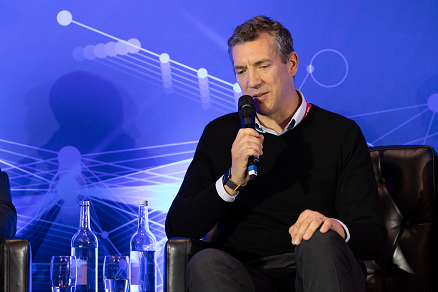
“The more adventurous are starting to think about where they can take really structured data and turn it into a news article,” he said.
“So the obvious place to start is weather. You can take the weather data, turn it into a news article. Sport might be the next place to go, especially a data-heavy sport like cricket, [a journalist] might not want to sit through four days of test match, but they can create an article about it. And you can imagine other things if the data gets better… so could you take your council minutes if the data structure improves and turn those into news articles for local publishers.”
AI and subscriptions: We are just getting started
Nina Wright, chair at Harmsworth Media which is the division of DMGT which runs the i and the New Scientist, said she is “particularly interested” in the potential of AI in subscriptions and personalisation: “helping to take a customer on a journey, serving them what they want, when they want it, how they want it”.
She said this could “help our businesses be smarter subscriptions businesses, and so I think we’re just starting to scrape the top of the iceberg on that”.
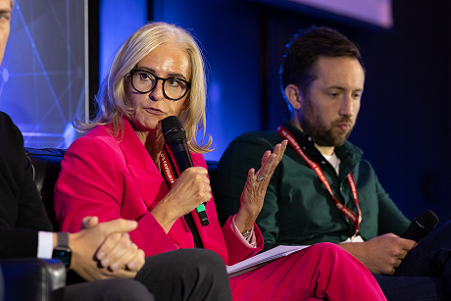
Email pged@pressgazette.co.uk to point out mistakes, provide story tips or send in a letter for publication on our "Letters Page" blog
